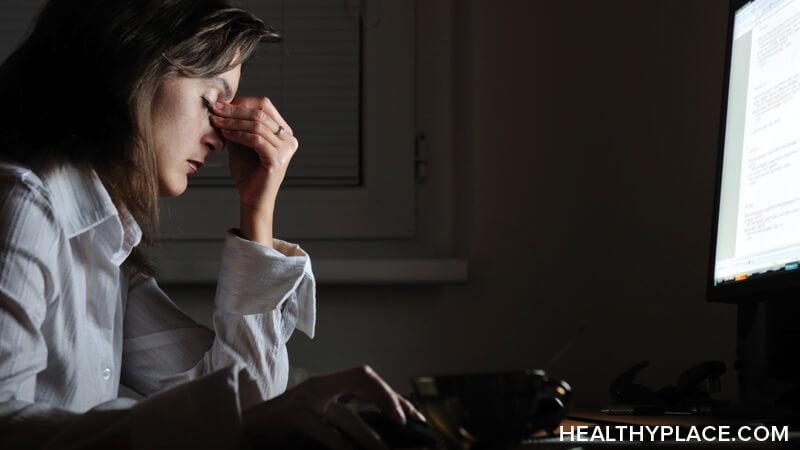Work-Life Balance Protects Me from Mental Health Burnout

In today’s hustle culture, we pay less attention to work-life balance than perhaps we used to. Instead, we laud entrepreneurs that spend their waking moments putting effort into reaching success. We applaud those who have side gigs and celebrate the tenacity of those that go-go-go for their careers. In those situations, work tips the scales so that life is barely a blip on the radar, and in celebrating them, it suggests that’s what we should all strive for. If not, we’re not doing enough. Consequently, we ignore how tipping the scales of work-life balance leads to burnout and suggest that the state of our mental health doesn’t matter.
My Work-Life Imbalance and Mental Health Burnout
I know firsthand how a work-life imbalance can fast-track me to mental health burnout. When I was in my mid-20s, I decided to be a journalist. I wanted to write and tell stories, and I saw this as a way to financially achieve this while chasing my dreams of publishing a fantasy novel. I went to school, graduated, and was lucky enough to land myself a reporter job right out of college.
This job came with a nine-to-five schedule, but I quickly learned that although my workday was technically within those hours, the work never really left me. I couldn’t turn it off. I had to be ready in case some newsworthy thing happened that I might need to rush to. My personal phone was also linked to work accounts because I didn’t have a designated work phone, meaning constant emails and notifications for all things reporting.
Being a journalist took a huge toll on my mental health. I was chronically anxious about the notifications on my phone or what might happen in a day. I felt like I couldn’t live my life because work was always looming in the background. I felt guilty at the thought of turning off notifications to get away from it and that I wouldn't be doing my job if I did.
Burnout was real, and burnout hit me like a truck. It led to too many sick days taken. For me, it was an incredibly unbalanced way to live.
When I left that job in 2018, I made the following post on my Facebook: "It’s so strange. For the first day in two years my phone isn’t inundated with notifications every time I unlock it. It’s kind of peaceful."
“Kind of” was an understatement.
A Job Is Not Worth Mental Health Burnout
That’s not the only job where I’ve dealt with work-life balance issues, nor am I perfectly balanced now. However, I understand and more readily recognize the importance of a work-life balance and how having that protects me from mental health burnout. Now, for my current nine-to-five, I shut down my work computer at exactly five o’clock unless it’s absolutely necessary I work later. I am not putting my mental health on the line for a job, and setting these boundaries has helped me protect it.
Hustle culture be damned, always being “on” and using every waking moment to advance a job or career is not for everyone. If you’re like me and need to set boundaries to protect yourself from burnout, I say do it. Your mental health is important.
APA Reference
Barton, L.
(2022, February 7). Work-Life Balance Protects Me from Mental Health Burnout, HealthyPlace. Retrieved
on 2026, March 4 from https://www.healthyplace.com/blogs/survivingmentalhealthstigma/2022/2/work-life-balance-protects-me-from-mental-health-burnout
Author: Laura A. Barton
More and more I see myself seeing things across various forms of media that talk about how if you were to suddenly leave they would begin looking for your replacement the next day. It's true. I'm glad that we're seeing an increasing number of conversations that recognize we cannot put everything we have into our work, into our jobs. We need balance, and acting to maintain that balance needs to be recognized not punished.
